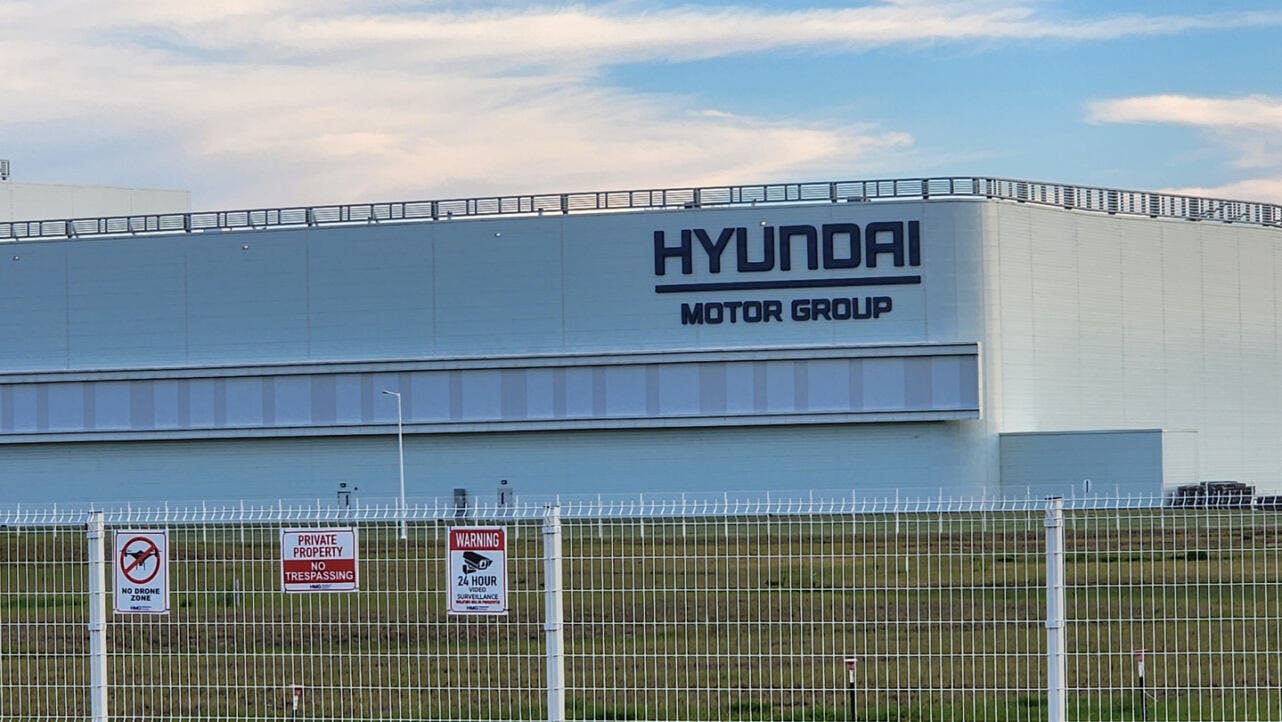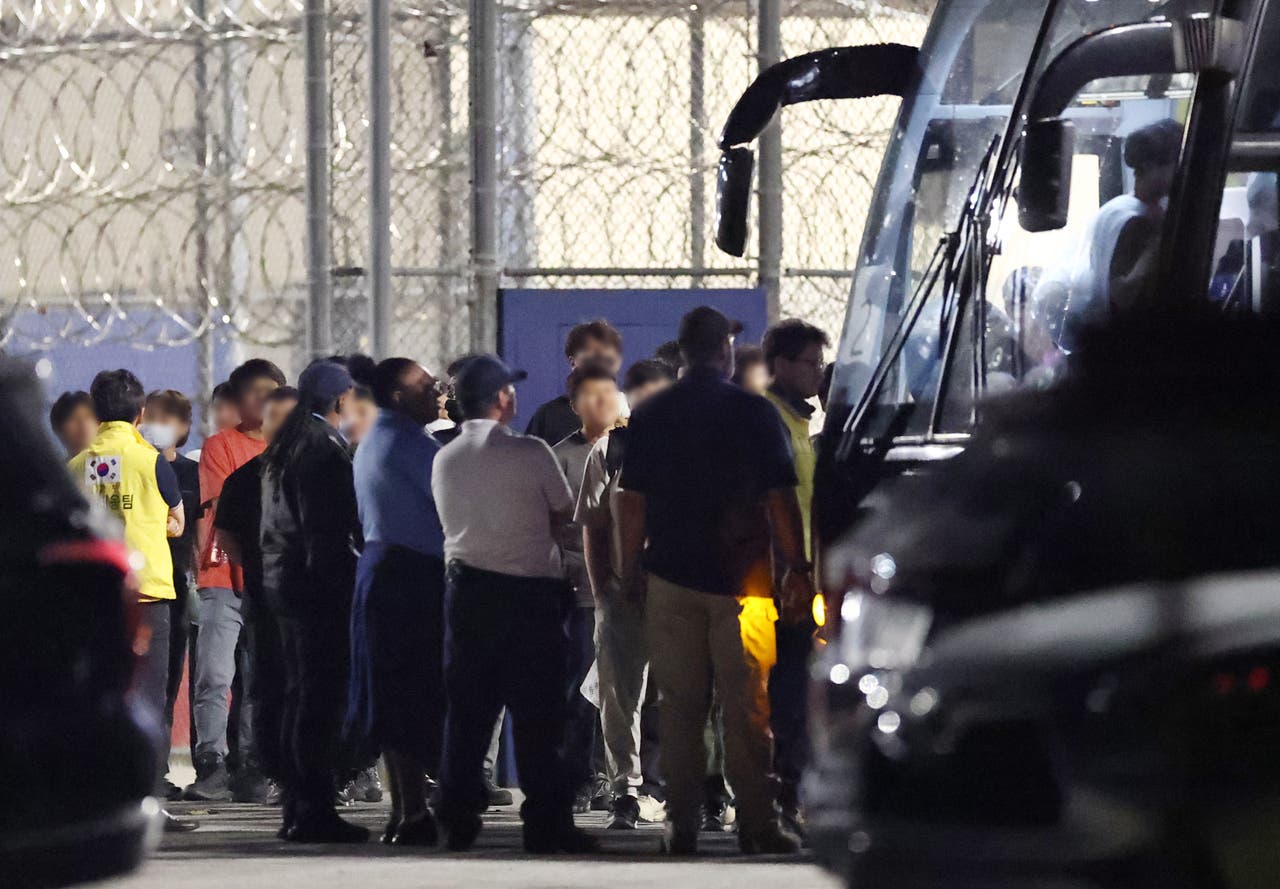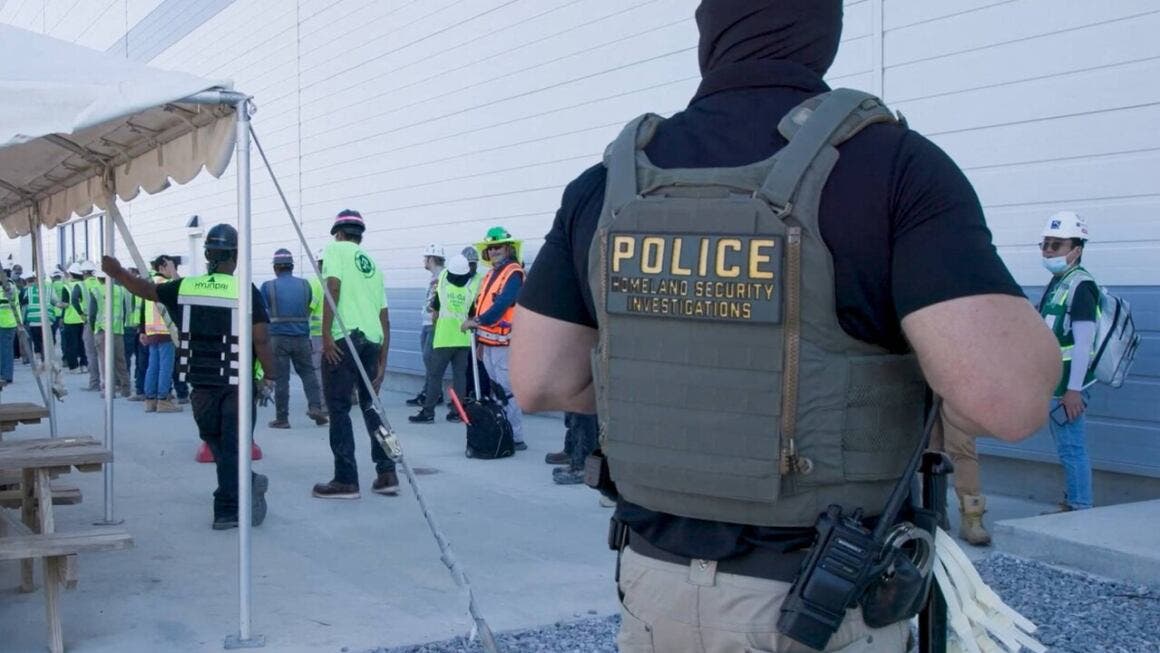Donald Trump made an unexpected move by offering South Korean workers caught in a recent immigration raid the chance to stay in the United States instead of being deported. However, according to Seoul officials, only one out of roughly 300 detainees accepted, while the vast majority chose to return home.
This decision delayed the charter flight scheduled for their repatriation by a full day, with buses transferring workers from the detention center to Atlanta’s airport overnight. Unlike other deportations, the South Korean nationals were not shackled, meeting a key demand from Seoul, which strongly criticized the use of armored vehicles and chains during the operation.

The raid targeted a $4.3 billion construction site in Georgia, a joint project between Hyundai Motor and LG Energy Solution to build an electric vehicle battery plant. In addition to South Koreans, around 150 workers of other nationalities, including Japanese and Chinese, were also detained.
The incident risks straining US–South Korea relations at a sensitive time, as both countries are working on a trade deal and trying to secure further South Korean investment in the US, something the Trump administration has been eager to attract. South Korean President Lee Jae Myung voiced concern over the raid’s impact, stressing that local businesses are facing growing uncertainty and confusion.

Officials in Seoul acknowledged possible visa violations, such as overstays on 90-day waivers or short-term B-1 business visas. Still, they emphasized that Korean firms have long struggled to obtain temporary work permits for specialized staff in their US facilities, often relying on flexible interpretations of immigration rules under previous administrations. Following the raid, Washington and Seoul agreed to explore the creation of a new visa category tailored for South Korean workers to safeguard industrial projects.
Meanwhile, LG Energy Solution instructed its subcontractors to prepare contingency plans and start hiring more local employees to minimize disruptions. Both China and Japan raised similar concerns for their citizens, urging the US to uphold foreign workers’ rights. Anyway, at this point, the episode could undermine Asian companies’ confidence in investing in America.
